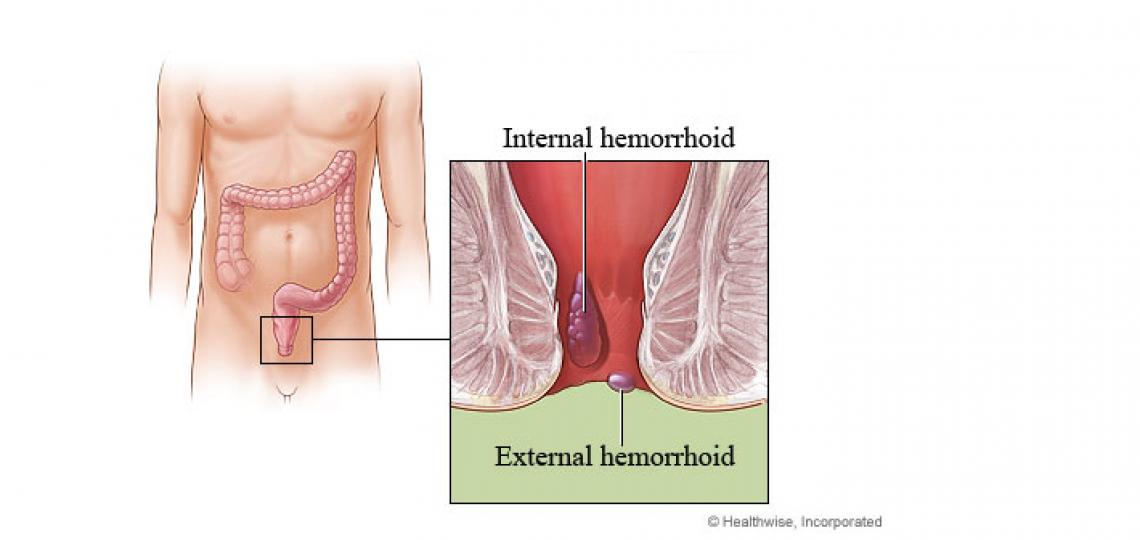What is a hemorrhoidectomy?
Hemorrhoidectomy is surgery to remove hemorrhoids. You will be given general anesthesia or spinal anesthesia so that you will not feel pain.
Incisions are made in the tissue around the hemorrhoid. The swollen vein inside the hemorrhoid is tied off to prevent bleeding, and the hemorrhoid is removed. The surgical area may be sewn closed or left open. Medicated gauze covers the wound.
Surgery can be done with a knife (scalpel), a tool that uses electricity (cautery pencil), or a laser.
The operation is usually done in a surgery center. You will most likely go home the same day (outpatient).
There is a procedure that uses a circular stapling device to remove hemorrhoidal tissue and close the wound. No incision is made. In this procedure, the hemorrhoid is lifted and then "stapled" back into place in the anal canal. This surgery is called stapled hemorrhoidopexy. People who have stapled surgery may have less pain after surgery than people who have the traditional hemorrhoid surgery. But the stapled surgery is more expensive. And people who have stapled surgery are more likely to have hemorrhoids come back and need surgery again.
Doppler-guided hemorrhoidectomy is a procedure that uses a scope with a special probe to locate the hemorrhoidal arteries so that less tissue is removed. Some studies show that it is less painful but more long term studies are needed to compare it with other procedures.
What to expect on the day of surgery
Before Your Surgery
Follow the instructions exactly about when to stop eating and drinking. If you don’t, your surgery may be canceled. If your doctor told you to take your medicines on the day of surgery, take them with only a sip of water.
Take a bath or shower before you come in for your surgery. Do not apply lotions, perfumes, deodorants, or nail polish. Do not shave the surgical site yourself.
Take off all jewelry and piercings. And take out contact lenses, if you wear them.
At the hospital
Bring a picture ID.
You will be kept comfortable and safe by your anesthesia provider. The anesthesia may make you sleep. Or it may just numb the area being worked on.
The surgery will take 30 minutes to 1 hour.
What Can You Expect After Surgery?
Recovery takes about 2 to 3 weeks.
Going home after surgery
Right after the surgery, when you are still under anesthesia, you will be given a long-acting local anesthetic. It should last 6 to 12 hours to provide pain relief after surgery. If you are not going to stay overnight in the hospital after surgery, you will leave only after the anesthesia wears off and you have urinated. Inability to urinate (urinary retention) sometimes occurs because of swelling (edema) in the tissues or a spasm of the pelvic muscles.
Someone should drive you home.
Care after surgery
You can expect some pain after surgery. If your doctor gave you a prescription medicine for pain, take it as prescribed. Ask your doctor what over-the-counter medicines are safe for you.
Some bleeding is normal, especially with the first bowel movement after surgery.
For a few days after surgery, drink liquids and eat a bland diet (plain rice, bananas, dry toast or crackers, applesauce).
Then you can return to regular foods and gradually increase the amount of fiber in your diet.
You may apply numbing medicines before and after bowel movements to relieve pain.
Ice packs applied to the anal area may reduce swelling and pain.
Frequent soaks in warm water (sitz baths) help relieve pain and muscle spasms.Some doctors may recommend that you take an antibiotic (such as metronidazole) after surgery to prevent infection and reduce pain.
Doctors recommend that you take stool softeners that contain fiber to help make your bowel movements smooth. Straining during bowel movements can cause hemorrhoids to come back.
Follow-up exams with the surgeon usually are done 2 to 3 weeks after surgery to check for problems.
© 2016-2019 Healthwise, Incorporated.








 Credit
Credit
